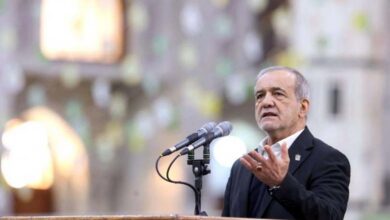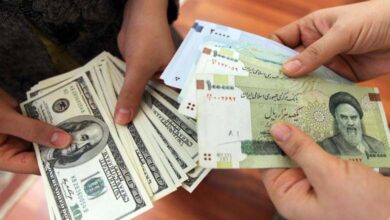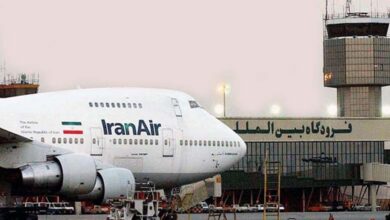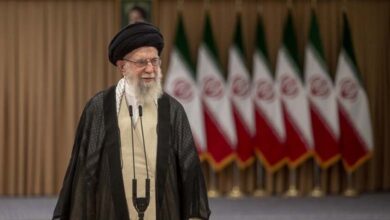Iran Tightens the Noose on Baha’is with a New Arrest Campaign
Iranian security forces raid the homes of several members of the Baha'i Faith, including women ranging from 70 to 90 years old, with one suffering from Alzheimer's disease.
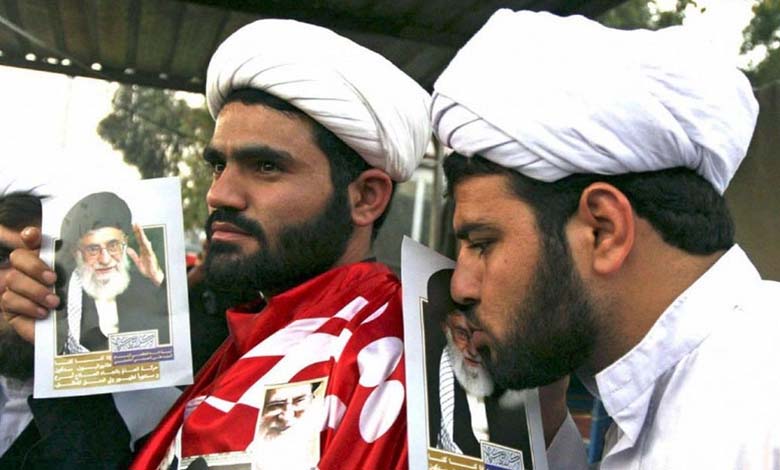
Iranian authorities have launched a new wave of arrests targeting members of the Baha’i Faith, the largest non-Muslim religious minority in the Islamic Republic, according to representatives of the community on Tuesday. This move has raised international concerns, and calls have been renewed to stop the persecution against followers of this religion.
At least 19 Baha’is were arrested in armed raids on their homes conducted by security forces last week in the cities of Hamedan, west of Tehran, and Karaj on the outskirts of the capital, according to a statement from the Baha’i International Community representing Baha’is at the United Nations.
Ten Baha’i women were arrested last month in the central city of Isfahan, bringing the total number of detained Baha’is across the country during the same period to 32 individuals.
Among the homes raided in Hamedan were those of five women aged between 70 and 90 years, one of whom suffers from Alzheimer’s disease, according to the statement. Two of the targeted women are widows whose husbands were executed by the Islamic Republic after the revolution.
Activists argue that Baha’is, who are not recognized by Iran, have faced persecution since the Islamic Revolution in 1979, and the oppression has intensified over the past year.
The Baha’i International Community stated that “the recent arrests and house searches confirm growing concerns that the Iranian government has escalated its repression of the oppressed Baha’i community in Iran.”
The Baha’i group in the United States stated in a press release that all the detainees remain in prison, except for two women detained in Isfahan, who were released on bail.
It confirmed that “the remaining detainees are still being held, and they have not been allowed visits from their families, and many of them were taken to the hospital for treatment during their detention,” adding that the reasons for their hospitalization have not been clarified yet.
The arrests have raised international concerns, with the non-resident U.S. Ambassador for International Religious Freedom, Rashad Hussain, stating on “Axios” that “the persecution of Baha’is in Iran must end,” adding that “the authorities’ approach in targeting Baha’i women is extremely concerning.”
Canada‘s Office of Human Rights expressed concerns about “reports of arrests and treatment involving violence” against Baha’is in Iran, while Luxembourg’s Foreign Minister Jean Asselborn expressed “deep concern” about the arrests.
The well-known poet Mahvash Sabet and Firuz Kamalabadi, who were arrested in July 2022, are still in prison, serving a ten-year sentence.
Baha’ism is a relatively modern monotheistic religion with its spiritual roots dating back to the early 19th century in Iran. Baha’is in Iran complain of discrimination in their daily lives, making it difficult for them to engage in business activities and even bury their dead. The Islamic Republic, with its Shia majority, views followers of the Baha’i Faith as “heretics” and accuses them of being affiliated with Israel.
In 2018, the United Nations General Assembly adopted a resolution calling on Tehran to stop harassment and intimidation against religious minorities and release Baha’is who were reportedly detained for their religious beliefs.


